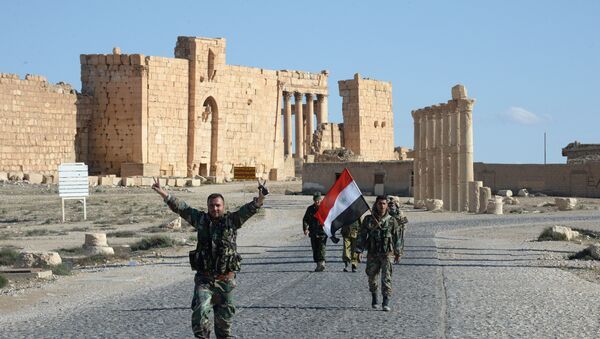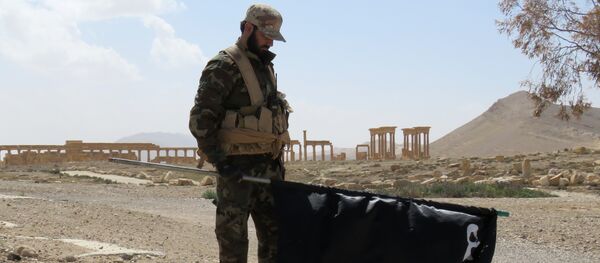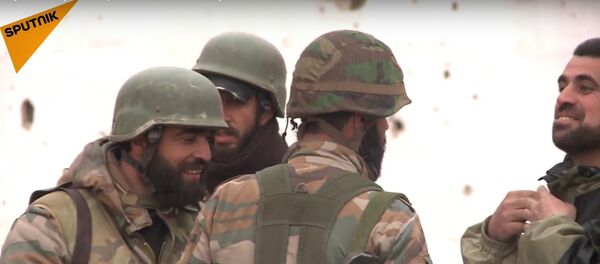The US-led coalition only had limited success in fighting the terrorist group because defeat of the terrorist group was not their goal, Tim Anderson, Senior Lecturer in Political Economy at the University of Sydney, told Radio Sputnik.
"When a very large group of around 1600 (Daesh) fighters went across the desert to claim Palmyra, there was no bombing at all from the US because it suited their purposes for ISIS (Daesh) to seize territory from the Syrian government and effectively make the Syrian state dysfunctional."
"The evidence has been there for a long time that the close allies of the US have always been these al-Qaeda groups, but because they talk differently in public, people are confused."
The Syrian army's victory over the Daesh terrorist group is not only symbolically important, but represents a substantial victory that Syria's armed forces and allied popular defense forces achieved even after many of Russia's air forces had left Syria, Anderson said.
"Principally it was the Syrian army retaking Syrian soil from the Western-backed extremist groups, and that's extremely important."
"When Palmyra was taken by ISIS (Daesh) last year, people were predicting the fall of Damascus. Now, they're very silent."
However, he said that Syria will continue to have a problem with Islamic terrorism because of support for radical Islamic groups from Turkey and Saudi Arabia.
"Raqqa will probably be the last major operation to liberate Syrian territory because it is quite a large town."
"But I think the problem is that the terrorist problem in Syria won't go away in a hurry. I think this move to take back territory and important sites in Syria is going to proceed very rapidly but unfortunately the terrorist problem is rather intransigent because of the attitude of Turkey and Saudi Arabia in particular."




